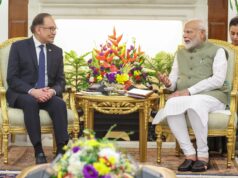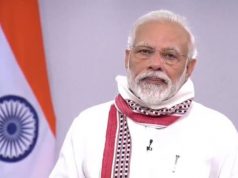 New Delhi, February 14 – The swords are out for Prime Minister Narendra Modi after the BJP’s disastrous showing in Delhi. Critics describe the verdict as an indictment of the PM’s nine-month stint in office.
New Delhi, February 14 – The swords are out for Prime Minister Narendra Modi after the BJP’s disastrous showing in Delhi. Critics describe the verdict as an indictment of the PM’s nine-month stint in office.
From his ’10 lakh-suit’ to ‘love jehad’ to Church vandalism, pundits have attributed many acts of omission and commission to the 67-3 score line against the ruling party.
While experts are entitled to their opinion, let us take a look at the only empirical data available that sheds light on what the voters of the Capital actually think of the Centre. According to the CSDS post-poll data for the Delhi elections, two-thirds of the respondents said they were satisfied with Modi as prime minister.
If the mandate was a referendum on the Modi government’s performance, then a massive 66 per cent of the respondents would not have said they approved of PM Modi’s work. Only 30 per cent were dissatisfied with the PM’s efforts. Even among the poorest voters, there was high level of support for Modi.
Centre’s popularity:
CSDS polled 2,060 respondents across 120 locations in 24 Assembly constituencies of Delhi. It’s not just the PM who scored on the popularity charts, even the central government got a thumbs up with 60 per cent respondents saying they were satisfied with the performance of the central government.
People seem to be more patient than the pundits, who have been quick to describe Modi’s government as a failure. So if it wasn’t the PM’s performance, what worked against the BJP? The data shows, contrary to common perception, that voters had a high opinion of Arvind Kejriwal’s 49-day stint in power.
A whopping 72 per cent expressed satisfaction with the aborted AAP government. Amongst poor voters, Kejriwal had an even stronger approval with almost 80 per cent of respondents approving his government.
 Even amongst middleclass and rich voters, 68 per cent said they had a high opinion of the 49-day AAP government. Only 24 per cent said they were dissatisfied. Kiran Bedi’s entry into the BJP made things worse for the party.
Even amongst middleclass and rich voters, 68 per cent said they had a high opinion of the 49-day AAP government. Only 24 per cent said they were dissatisfied. Kiran Bedi’s entry into the BJP made things worse for the party.
63 per cent of respondents disapproved of the decision. Even among traditional BJP voters, 60 per cent said the party had ignored local leaders by parachuting Bedi.
According to data, Delhi’s scenario was this. Voters looked at the two options available. BJP’s local leaders were busy fighting each other instead of combating Kejriwal’s challenge.
The AAP ran a positive, spirited campaign that percolated into the electorate. There was a feeling among voters that Kejriwal held a lot of potential and he hadn’t been given a proper chance last to fulfil his promises.
Voters picked one party they thought would help improve their lives. The BJP’s collapse comes as a wake up call to Modi government. But to suggest that the Delhi disaster was a vote against Modi is empirically incorrect.
-INDIA TODAY










